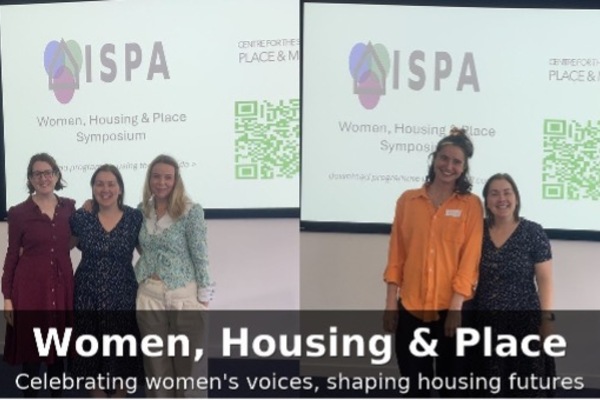How can research help us to tackle and prevent homelessness at a local and practice level? What does recent evidence say about ‘what works’ in providing appropriate support to some of society’s most disadvantaged and vulnerable people?

These are some of the questions explored in a one-day research conference – Tackling Homelessness: Developing and Sharing Best Practice – hosted by Caring in Bristol (a charity that provides support to homeless and vulnerable people in Bristol, including through the Bristol Nightstop scheme) on 9 November 2016. Leading national and international researchers spoke at the Housing Studies Association funded event, which was attended by over 70 local practitioners from 30 different organisations and specialist support services.
The day commenced with feedback from the audience on what they wanted from the day, with the desire for new ideas to inform service delivery emerging as a key theme. The challenges associated with putting research into practice were highlighted by the first speaker Stephen Gaetz, a Professor at York University in Toronto, Canada. In his presentation ‘Knowledge Mobilization and Design Thinking’, Stephen provided a number of useful examples of how the impact of research on policy and practice can be increased, for example, by means of innovative communication and marketing strategies. Despite the challenges associated with disseminating knowledge, research can and does play a key role in developing effective interventions for homeless people.
This is the main message emerging from Erika Moisl’s presentation on the Crisis Skylight evaluation. The Skylight project exemplifies the ways in which investment in robust evidence can drive improved approaches to supporting single homeless people. The full report of the Skylight project and evaluations can be found here.
With young people facing disproportional risks of homelessness and poverty, Dr Beth Watts’ talk provided a timely and comprehensive overview of effective evidence-informed approaches in the field of youth homelessness. Personalised prevention, early help, non-institutional accommodation and a poverty-informed approach were presented as particularly important.

Dr Kesia Reeve from Sheffield Hallam University, presented findings from a recent study exploring ‘Homeless People’s Experiences of Welfare Conditionality and Benefit Sanctions’. Evidence from this study indicates that the introduction of a stricter sanctions regime is negatively and disproportionally affecting homeless people. As further explored in the full report, key changes in the system are needed to ensure homeless people are adequately supported to avoid hardship and enter employment by the social security system.
Drawing on findings from a consultation carried out by Caring in Bristol, Matt Dowse and Jennifer Harris discussed the multiple structural and individual barriers disadvantaged young people in Bristol face in accessing and engaging with specialist support services. Jacob Sinetos discussed how the Golden Key programme is aiming to bring about system change so that services in Bristol can better support people with multiple and complex needs.
Key themes to emerge from the day were the crucial role played by research and evidence in evaluating, critiquing and improving policy and practice developments that impact on homeless and vulnerable people. Another key theme to emerge concerned the multiple barriers experienced by people with complex needs in accessing appropriate and effective support.
A commitment to pursing evidence based practice and a better understanding of the wider context of homelessness were repeatedly mentioned in the feedback provided by conference participants. Participants also expressed a desire for additional regular research focused events in the local area. Caring in Bristol will be exploring ways to further promote opportunities for sharing and learning within the sector. For more information, please contact [email protected]
Caring in Bristol would like to thank the Housing Studies Association for providing the funding that made this event possible, and Signal Networks and Pret and for their additional sponsorship.






